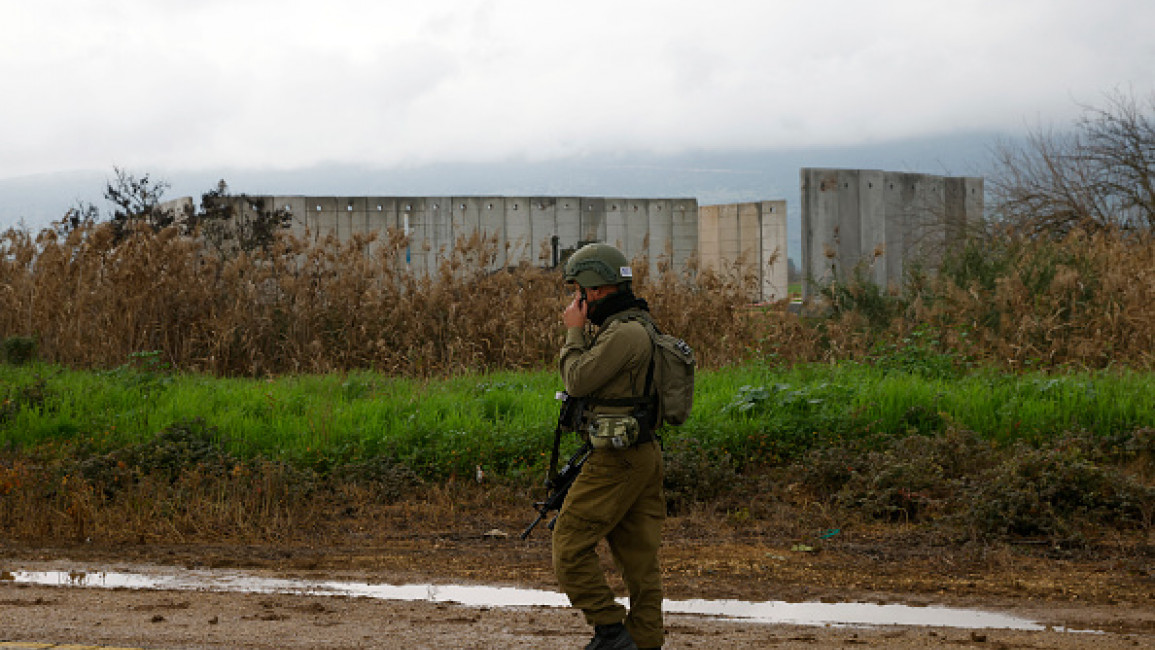Israel could make concessions in Lebanon border deal with Hezbollah: report
Israel could make concessions with Lebanon in a potential deal with the powerful Hezbollah group over a border demarcation, Israeli media has said.
Ynet reported on Sunday that while Israel has been demanding Hezbollah fighters to move behind Lebanon's Litani River, it may also agree to withdraw some of its forces from the border region.
The Israeli site claimed that some of the 2,000 members of Hezbollah's elite Radwan Force have withdrawn to about four and six kilometres from the Lebanese-Israeli frontier in recent weeks.
Within the framework of negotiations – being mediated between Israel and Lebanon by Western powers, most notably the US and France – Israel may agree to return to Lebanon some border points that have been disputed for years, the site said.
One of the most important territories claimed by Lebanon and occupied by Israel is the Shebaa Farms.
Other contested border points are smaller plots of land "no bigger than a few square metres, which Israel may give up", Ynet said, in exchange for Israel constructing a new border fence of "enormous dimensions and technological capabilities".
"Israeli officials now estimate that the probability of successful negotiations is 30 percent" after previously being pessimistic that mediated talks with Hezbollah will fail and ultimately lead to war, Ynet added.
Since Israel withdrew from southern Lebanon after its 28-year-long occupation, there has been no fixed land border between the two neighbours.
But Hezbollah, currently calling the shots in south Lebanon and which has significant political sway in Beirut, has said Lebanon’s frontier with occupied Palestinian Territory has already been drawn around a century ago, and some contested border points remain unresolved.
Despite being enemy states, Lebanon and Israel signed a landmark maritime border deal in October 2022, after years of US-mediated talks.
The agreement – considered flawed by critics on both sides – would allow them to exploit offshore gas fields.
White House envoy Amos Hochstein, the main man behind the maritime border deal, is now tasked with mediating talks between Lebanon and Israel to solve the remaining land border issues.
Fears of war remain
The Iran-backed Hezbollah militant group and Israel have been engaged in fierce cross-border clashes since the start of the Gaza war, nearly four months ago. Over 200 have been killed in Lebanon, mostly Hezbollah fighters.
Hezbollah, an ally of the Palestinian Hamas group, has said this was a "historic opportunity" to liberate Arab territories still occupied by Israel. It argues that its confrontation with Israel is to alleviate pressure on Gaza.
Israel has called for Hezbollah to withdraw its forces north of the Litani River in line with UN Security Council Resolution 1701, while Lebanon has called on Israel to vacate the territory it was supposed to withdraw from under that UN agreement, including the Shebaa Farms.
UNSCR 1701 provided an end to the month-long summer war fought between Hezbollah and Israel in 2006, with each side accusing the other of not complying with the pact.
Hezbollah has said it will not engage in negotiations over the withdrawal of its forces until a ceasefire in Gaza is achieved.
Israel has threatened to forcibly "remove" the militant group if diplomacy fails and says tens of thousands of northern Israeli residents are refusing to return home, fearing Hezbollah’s presence across the fence.
This has raised concerns of a full-scale war on Lebanon, already reeling under its worst-ever financial and economic crisis.
Both sides have warned of devastating consequences in the event of a full-blown conflict.


![President Pezeshkian has denounced Israel's attacks on Lebanon [Getty]](/sites/default/files/styles/image_684x385/public/2173482924.jpeg?h=a5f2f23a&itok=q3evVtko)



 Follow the Middle East's top stories in English at The New Arab on Google News
Follow the Middle East's top stories in English at The New Arab on Google News


